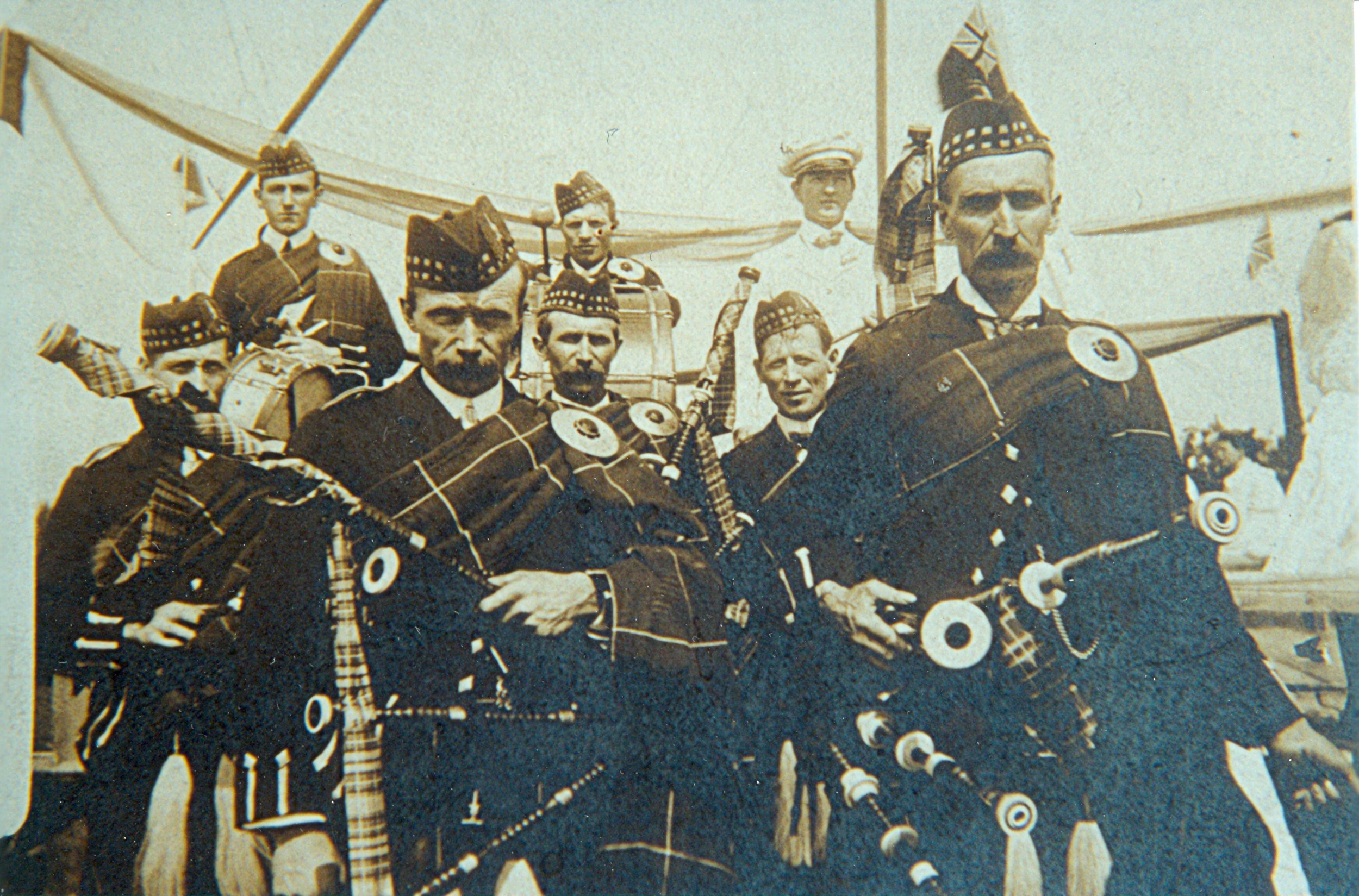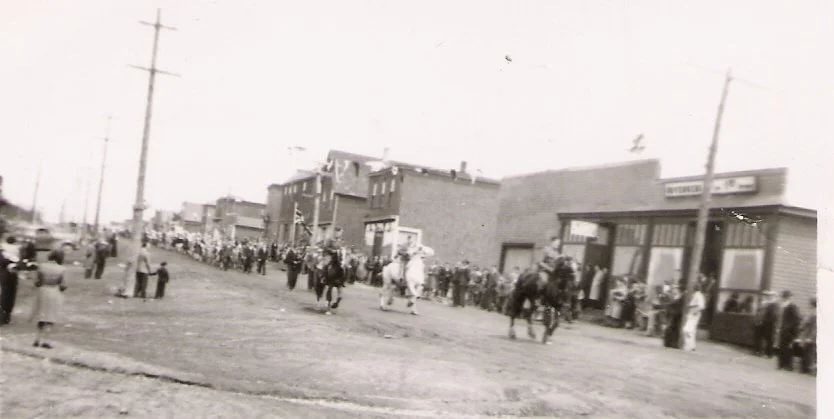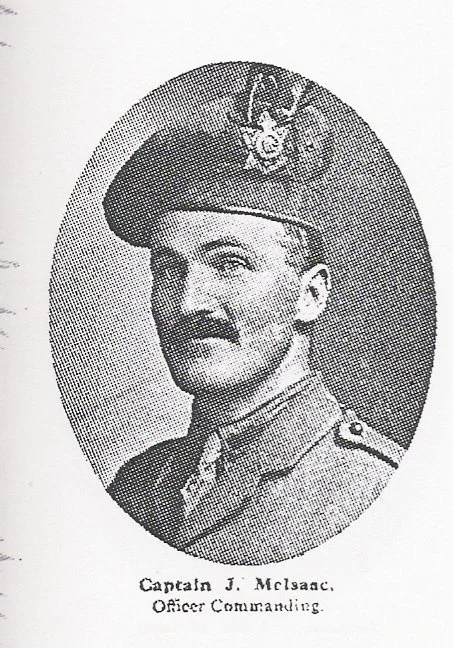
War Years
The world wars forever changed the lifestyles of the Inverness people. In 1939, Hitler was on the march, and the nazi machine was threatening the safety of Europe. Slowly, the youth of the community heeded the call to war; many miners fled Inverness to seek opportunities across the province to serve the war effort…
The Home Front
Pictured: People gather on Central Avenue for the war bond parade.
As groups of men began to leave Inverness for the war overseas, many businesses felt the pinch of a depleted labour market. The Royal Bank, an institution of the town and hub for male workers was forced to hire women due to the shortage of manpower. As the Inverness Bulletin announced, “…that at present the genial and popular manager of the Royal Bank, Ed Rhyno, is carrying on with half dozen girls.” This was a bombshell for the community and increased the number of customers at the bank. The reputation of the bank remained unsullied.
As the war raged, money was pouring into the town from the pay envelopes of military personnel and family members who worked abroad. However, restrictions were in place on how one could spend the money. There were ration coupons for staples such as butter, sugar, tea, cheese, and other necessities. The allowable rate for one adult, twenty-one or older, was 12 quarts of beer and one liter of hard liquor a month. Of course, the beer of choice was a Ten Penny or a Sandy MacDonald Special of scotch.
Entertainment was different in the 1930s. The invention of the TV was well into the future, and the only source of news or song was the radio. Invernessers would flock to neighbouring houses, who had access to a radio, to catch up on the latest news from the war. Reading material was limited to The Halifax Chronicle, The Herald or the Cape Breton Post. The people were enthralled by the war stories of the day; many of the heroic soldiers were family of their own.
The Heroes
Pictured: Captain J. MacIsaac of Inverness, Nova Scotia.
The bravery of those who served in the wars from the town is too numerous to mention. Though it is only fair to share the courageous story of Archie Hannigan…
Archie was born in the Red Rows and attended Holy Family School. He was tough and a risk-taker who never backed down from a fight and stood up to bullies on repeated occasions. Loved by all those who knew him. Archie sought fame in the square ring of the boxing profession. Trainer Johnny Nemis, of New Waterford saw great potential in Archie and became his personal manager. After his training, Archie managed to fight his way to Maritime Light Heavyweight Champion!
To the surprise of very few, Archie enlisted in the Canadian Army. Upon his return home, it was discovered he had brought with him the biggest prize of them all, the military medal. Never boastful, Archie ducked any mention of his prize and the quote that accompanied it was for his eyes only. The citation read in part, “with complete disregard for personal safety, he reached his objective, and his gallantry in action was an inspiration for all those who took part in the attack.” Archie Hannigan’s unselfish devotion to duty was an inspiration for the entire town.
The average men and women of Inverness, whose lifestyles never imagined the ugliness of war, adapted and became legends in Canadian military history. The Nova Scotia battalions won countless honours in Europe. Willie “The Piper” Gillis was a Red Rows neighbour and was brought up learning the pipes. He would often contribute to large piping parades on the streets of Italy and Northwest Europe once the war ended. These heroic individuals who served the Town of Inverness will never be forgotten for their initiative and bravery.
Post War
May 8, 1945, marked the end of the Second World War and the people of Inverness responded with a massive parade down Central Avenue and concluded with parties and prayers for the days that followed. The men and women returned home, but Inverness already had reverted back to 1939 status – no jobs, no new industry. Some saved their money for a rainy day, though many splurged, and within months, their military compensation package was gone.
The resourceful invested in university education and, after years of study, the small town of Inverness had scores of university graduates. Though they had to leave their homes once again to search for jobs elsewhere. Some of the young people went into the auto industry in Ontario. Some stayed in their new home and when their loneliness became unbearable, planned their summer vacations in Inverness.




